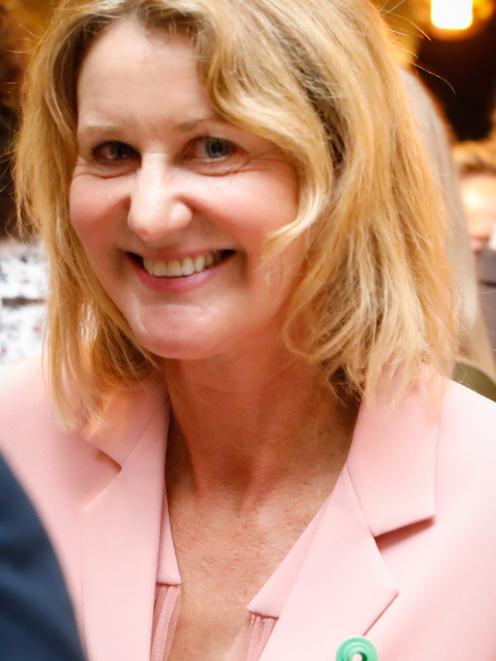
Otago Merino Association chairwoman Jayne Reed, from Cloudy Peak Station, near Tarras, was referring to the never-before-seen pressures the agricultural sector was facing, in her address to the annual merino awards on May 28.
"Not the usual seasonal weather worries, commodity price fluctuations and the odd flustering visit from the bank manager, which our fathers dealt with, but an increasingly scary onslaught of bureaucratic intervention ... written in some cases by young idealistic policy makers who have never stepped on a farm.
"Our urban neighbours are telling us how to manage our outcomes without any real understanding of what 99% of us are working towards and this is the really disappointing part.
"What does it take to be heard or listened to?"
Citing the rise of farmer group Groundswell, Mrs Reed said the fact farmers, who were generally time-poor, were turning up to meetings in their droves was indicative of how the industry was feeling.
"Maybe enough is enough.
"Maybe it is time to become our own farming environmental climate change activists and tell our story — the farming heritage we work to leave behind is a story that some might need to hear.
"As merino growers, we know instinctively our footprint needs to be light. The hills we are custodians of don’t allow anything else.
"As all parts of our merino industry have continued to grow, adapt and improve, it is a legacy we know we can proud of," she said.
New Zealand had taken a "huge financial battering" due to Covid-19 but the resilience and strength of the farming and horticultural industries had enabled it to continue to export.
That had been a major factor in buffering New Zealand from the massive economic shock of closed borders.
"How quickly our country’s fortunes have turned away from the heavily government supported and highly lucrative tourism industry, right back to the sector New Zealand as built on.
"The speed at which the agriculture industry responded to the crisis is nothing short of impressive and is a reminder to all that the foods we eat and the fibre we dress in are not born on supermarket and department store shelves," Mrs Reed said.
Merino contracts had been a "life-saver" in many cases to growers, offering security in a time of uncertainty, and relationships forged with brand partners would be critical as the industry continued to navigate fairly uncertain times.
It was becoming increasingly difficult to encourage young people into the industry at grassroots level.
"Farming is one of those careers that is remarkably diverse and there is a lot of skills to master.
"You really don’t want to lose you sense of humour — some days it may be all you have."













